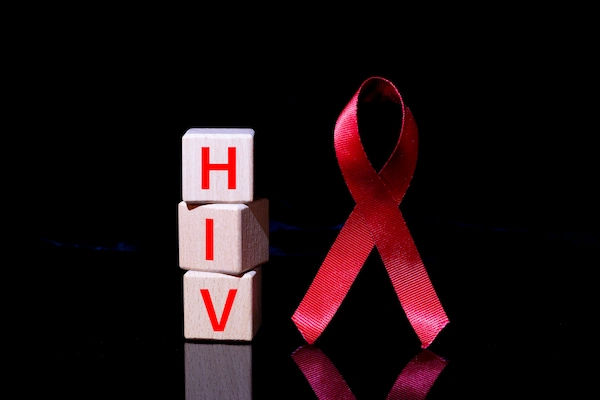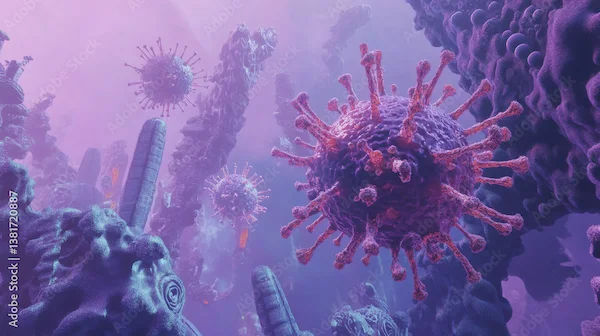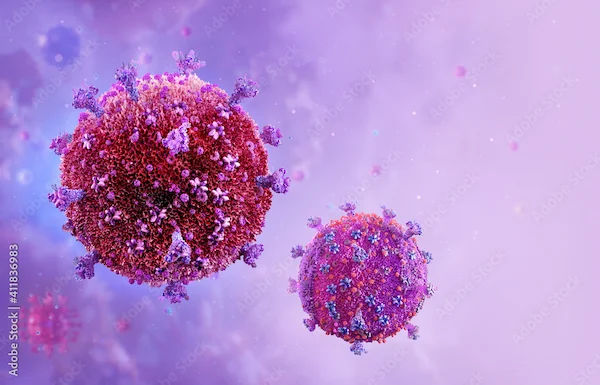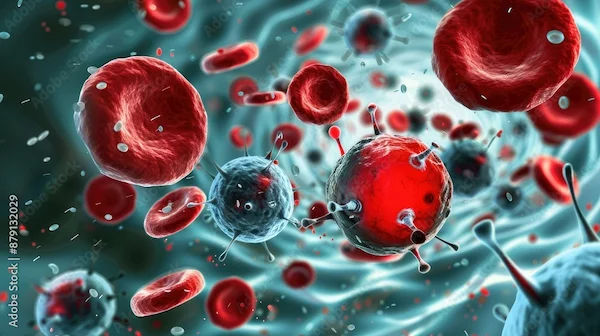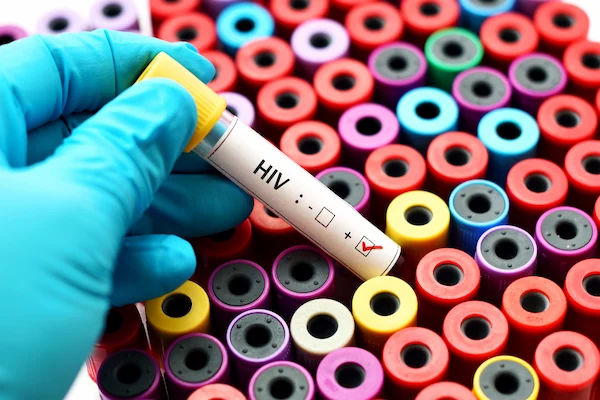HIV and AIDS: Symptoms, Treatment, and Prevention
Learn about HIV and AIDS symptoms, transmission, treatment, and prevention. Find out how ART helps manage HIV, ways to protect yourself, and when to see a doctor.

Written by Dr. Siri Nallapu
Reviewed by Dr. Dhankecha Mayank Dineshbhai MBBS
Last updated on 18th Aug, 2025

Living with HIV or worrying about AIDS can be overwhelming, but understanding the condition can help you take control of your health. HIV (Human Immunodeficiency Virus) weakens the immune system, making it harder for the body to fight infections. If left untreated, HIV can progress to AIDS (Acquired Immunodeficiency Syndrome), the most advanced stage of the infection.
The good news is that with proper treatment and care, people with HIV can live long, healthy lives. This article will guide you through the symptoms, treatment options, and prevention strategies for HIV and AIDS.
What Are HIV and AIDS?
HIV (Human Immunodeficiency Virus)
HIV attacks the body’s immune system, specifically CD4 cells (a type of white blood cell that fights infections). Over time, if untreated, HIV reduces the number of these cells, making the body vulnerable to infections and diseases.
AIDS (Acquired Immunodeficiency Syndrome)
AIDS is the final stage of HIV infection. It occurs when the immune system is severely damaged, and the body can no longer fight off life-threatening infections and cancers. However, not everyone with HIV develops AIDS, especially if they receive treatment early.
Symptoms of HIV and AIDS
Early Stage (Acute HIV Infection)
Within 2-4 weeks after infection, some people experience flu-like symptoms, which may include:
- Fever
- Chills
- Rash
- Night sweats
- Muscle aches
- Sore throat
- Fatigue
- Swollen lymph nodes
These symptoms can last a few days to several weeks. However, some people may not have any symptoms at all.
Clinical Latency Stage (Chronic HIV Infection)
After the initial stage, HIV may not cause symptoms for years, but the virus is still active and damaging the immune system. Without treatment, this stage can last about 10 years or longer.
AIDS (Advanced Stage of HIV)
When HIV progresses to AIDS, symptoms become severe and may include:
- Rapid weight loss
- Extreme tiredness
- Prolonged swelling of lymph glands
- Diarrhea lasting more than a week
- Sores in the mouth, anus, or genitals
- Pneumonia
- Memory loss or neurological disorders
How Is HIV Transmitted?
HIV spreads through certain body fluids, including:
- Blood
- Semen and pre-seminal fluid
- Vaginal and rectal fluids
- Breast milk
Common Ways of Transmission:
1. Unprotected Sex – Vaginal, anal, or oral sex without a condom.
2. Sharing Needles – Using contaminated needles for drugs, tattoos, or medical injections.
3. Mother to Child – During pregnancy, childbirth, or breastfeeding.
4. Blood Transfusions – Rare in countries with strict screening, but still a risk in some areas.
Consult an Specialist for the best advice
HIV Does NOT Spread Through:
- Hugging, shaking hands, or casual contact
- Sharing food or drinks
- Mosquito bites
- Sweat or tears.
Diagnosis and Testing
Early detection is crucial for managing HIV effectively. Tests include:
- Antibody Tests – Detect HIV antibodies in blood or saliva (results in 20-30 minutes).
- Antigen/Antibody Tests – More accurate, detecting both virus and antibodies (blood test).
- Nucleic Acid Test (NAT) – Detects the virus itself (used for high-risk exposures).
Get Your Health Assessed
If you think you’ve been exposed, get tested immediately. Many clinics offer confidential testing, including home testing kits.
Book an HIV Test on Apollo 24|7 – Get tested easily and confidentially from home or at a nearby lab.
Treatment for HIV and AIDS
While there’s no cure for HIV, antiretroviral therapy (ART) can control the virus and prevent AIDS.
How ART Works:
- Reduces viral load (amount of HIV in the blood).
- Helps the immune system recover.
- Prevents transmission to others.
Lifestyle Tips for Managing HIV:
- ✔ Take Medications Regularly – Missing doses can make the virus resistant.
- ✔ Eat a Balanced Diet – Strengthens immunity (fruits, vegetables, lean proteins).
- ✔ Exercise Regularly – Boosts energy and mental health.
- ✔ Avoid Alcohol and Smoking – Weakens the immune system.
- ✔ Practice Safe Sex – Always use condoms to protect yourself and others.
- ✔ Get Vaccinated – Protects against infections like flu and pneumonia.
Prevention of HIV and AIDS
1. Use Protection
- Always use condoms during sex.
- Consider PrEP (Pre-Exposure Prophylaxis) – A daily pill for high-risk individuals to prevent infection.
2. Avoid Sharing Needles
- Use sterile needles if injecting medications or drugs.
3. Get Tested Regularly
- If sexually active, get tested at least once a year.
4. PEP (Post-Exposure Prophylaxis)
- Emergency medication taken within 72 hours of possible exposure to prevent infection.
5. Prevent Mother-to-Child Transmission
- Pregnant women with HIV should take ART to protect the baby.
Myths vs. Facts About HIV/AIDS]
- ❌ Myth: HIV can spread through casual contact.
- ✅ Fact: HIV only spreads through specific body fluids.
- ❌ Myth: HIV always leads to AIDS quickly.
- ✅ Fact: With treatment, people with HIV can live long, healthy lives without developing AIDS.
- ❌ Myth: Only certain groups get HIV.
- ✅ Fact: Anyone can get HIV, regardless of age, gender, or sexual orientation.
When to See a Doctor?
If you:
- ✔ Have had unprotected sex or shared needles.
- ✔ Experience flu-like symptoms after possible exposure.
- ✔ Want to start PrEP or PEP.
Consult a Specialist on Apollo 24|7 – Speak to an HIV expert for personalized advice and treatment.
Final Thoughts
HIV is a manageable condition with the right treatment and care. Early testing, proper medication, and healthy lifestyle choices can help you live a full life. If you’re concerned about HIV, don’t hesitate to get tested or seek medical advice.
Consult an Specialist for the best advice
Consult an Specialist for the best advice

Dr. Mohamed Azeem
General Physician/ Internal Medicine Specialist
2 Years • MBBS,MD(Internal Medicine) CCEBDM
Karaikudi
Apollo Hospitals Karaikudi, Karaikudi

Dr Syed Mateen Pasha
General Physician
2 Years • MBBS
Bengaluru
PRESTIGE SHANTHINIKETAN - SOCIETY CLINIC, Bengaluru

Dr. Anand Ravi
General Physician
2 Years • MBBS
Bengaluru
PRESTIGE SHANTHINIKETAN - SOCIETY CLINIC, Bengaluru

Dr Aakash Andgi
General Physician/ Internal Medicine Specialist
9 Years • MBBS MD
Bengaluru
Apollo Clinic, JP nagar, Bengaluru

Dr. Bhukya Pavan Kalyan
General Physician
5 Years • MBBS DNB Paediatrics
Bengaluru
PRESTIGE SHANTHINIKETAN - SOCIETY CLINIC, Bengaluru
Consult an Specialist for the best advice

Dr. Mohamed Azeem
General Physician/ Internal Medicine Specialist
2 Years • MBBS,MD(Internal Medicine) CCEBDM
Karaikudi
Apollo Hospitals Karaikudi, Karaikudi

Dr Syed Mateen Pasha
General Physician
2 Years • MBBS
Bengaluru
PRESTIGE SHANTHINIKETAN - SOCIETY CLINIC, Bengaluru

Dr. Anand Ravi
General Physician
2 Years • MBBS
Bengaluru
PRESTIGE SHANTHINIKETAN - SOCIETY CLINIC, Bengaluru

Dr Aakash Andgi
General Physician/ Internal Medicine Specialist
9 Years • MBBS MD
Bengaluru
Apollo Clinic, JP nagar, Bengaluru

Dr. Bhukya Pavan Kalyan
General Physician
5 Years • MBBS DNB Paediatrics
Bengaluru
PRESTIGE SHANTHINIKETAN - SOCIETY CLINIC, Bengaluru

